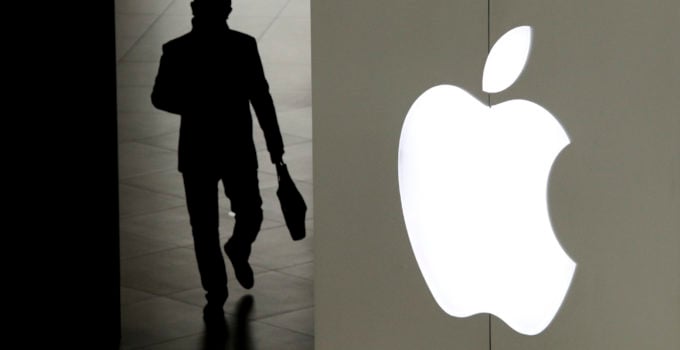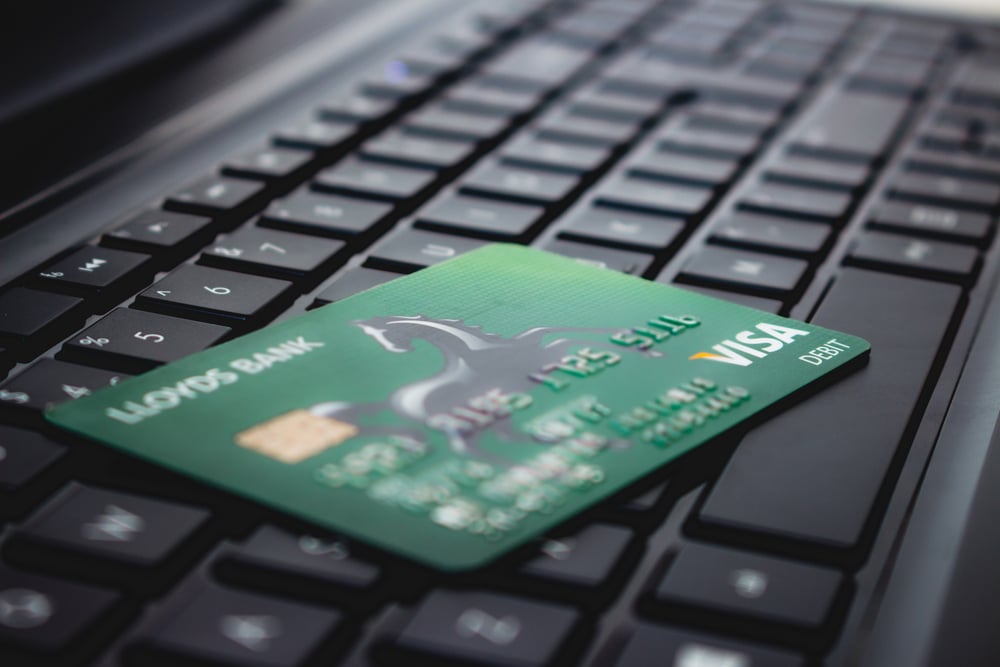The Apple-Goldman Sachs Credit Card is a Poor Substitute for a Secure Bitcoin Wallet
Author: Wes Messamore / Source: CCN

The security design of bitcoin transactions already made the new Goldman Sachs and Apple credit card obsolete before it even came out.
Tripp Mickle, Liz Hoffman, and Peter Rudegeair reported for the Wall Street Journal Thursday:
“Apple Inc. and Goldman Sachs Group Inc. plan to start issuing this spring a joint credit card paired with new iPhone features that will help users manage their money.
“The card will be rolled out to employees for testing in the next few weeks and officially launch later this year, according to people familiar with the matter.”
The Verge’s Jon Porter writes:
“The main selling point of the card is expected to be deeper integration with the Apple Wallet app, which will allow users to manage balances and set spending goals.”
Someone Tell Apple: Credit Cards Are Very Stupid

I’ve always marveled that we hand our credit card or debit card to teenagers at restaurants to disappear with for a few minutes, with all the information on it to spend your money.
We tell total strangers over the phone our name, credit card number, its expiration date, and the super special three number security code on the back to have a pizza delivered.
This is insane.
It does show how trustworthy the people in our society generally are that a financial payment system whose security design is so broken hangs together as well as it does.
But this is a big planet, and there are a lot of people. Not all of them are honorable or trustworthy. Companies...
Israel Securities Authority (ISA) turns to blockchain for messaging system cybersecurity
Author: Marie Huillet / Source: Cointelegraph

The Israel Securities Authority (ISA) has started to use blockchain to improve the cybersecurity of its messaging system, online newspaper Times of Israel reports today, October 3.
The government regulator has reportedly embedded the technology into a system dubbed “Yael,” used to deliver messages and other information to entities that fall under ISA oversight.
The ISA has further plans to implement blockchain in two other systems, including an online voting system that enables investors to participate in ISA meetings remotely, and a system called ‘Magna” that stores all the reports filed by ISA-regulated entities. The blockchain solution used by ISA was reportedly developed by IT firm Taldor, according to the Times of Israel.
...
The Regulatory System(S) And Cryptocurrencies
Source oneQube by Christopher Faille
Edmund Mokhtarian and Alexander Lindgren have written a fascinating discussion of “operational issues and best practices” for cryptocurrency traders. As part of this broader discussion, they have provocative things to say about the regulatory system in the U.S. and about where, if anywhere, bitcoins and other cryptocurrencies fit into it.
The regulatory system in the United States is both fragmented and functional. There is no single administrative body whose job it is to oversee the capital markets as a whole, working toward efficiency on the one hand and working against fraud on the other. Instead, there are several agencies involved in this task or these tasks, the most important of which (the Commodity Futures Trading Commission and the Securities and Exchange Commission) are distinguished from each other by the sort of investment vehicle they oversee. As the names suggest, the CFTC oversees commodities trading, the SEC securities trading.
The fragmentation is “functional” in character in that the distinction is defined by the function the two types of instrument perform. Commodities and securities have much in common. They are both traded on markets, they are both quite liquid, and they both serve both profit seekers and risk hedgers. But what distinguishes them? Seventy years ago the Supreme Court gave the following ffunction definition if a security: it is an instrument by which “a person invests his money in a common enterprise and is led to expect profits solely from the efforts of the promoter or a third party.”
The Function of a Security
By design, that definition is very broad, in order to make it difficult for security fraudsters to escape responsibility by saying that they aren’t really securities fraudsters. The function of a security, whether called a stock or bond or something else, is to allow an investor to gain exposure to the gains of an enterprise (commonly a listed corporation) without making any further ‘effort’ other than the infusion of the money itself.
Redefining Ecommerce security and efficiency through the Elysian blockchain
Source: thetokener.com

Elysian, a blockchain based startup, is all set to create a relationship of trust between the businesses and consumers in e-commerce like never before by addressing the most common shortcomings of this thriving industry. This decentralized ecosystem will drastically transform the standard e-commerce business model by ensuring faster delivery, secure customer data storage, and identity theft protection.
Elysian is making quick inroads towards their pursuit to deliver a decentralized e-commerce platform with innovative security and revolutionary user experience. A blockchain based ecosystem, Elysian will be the first e-commerce platform to integrate blockchain for the secure storage of all customer data and utilize the technological advances such as Artificial Intelligence and Virtual Reality to deliver an unprecedented user experience.
Business to consumer (B2C) e-commerce is a massive global market, expected to generate global sales exceeding $4 trillion by 2021. However, the lack of trustworthy cybersecurity, primarily in the form of identity theft, remains to be a serious concern for the industry. Moreover, the cryptocurrency enthusiasts all over the world are still waiting for an e-commerce platform that will accept cryptocurrency in exchange for all their products and services. From an overall perspective, till now, the industry still has much room for improvement in terms of user experience, specifically by integrating new types of technologies.
Elysian makes e-commerce trustworthy by creating an improved level of data storage security by using the Proof-of-Authority algorithm. This will ensure the creation of an ecosystem with a private blockchain to store encrypted credit card information and other user data securely over a distributed network. With the application of Artificial Intelligence and Virtual Reality, it will allow shoppers the freedom to shop at home in an intimate environment and...





